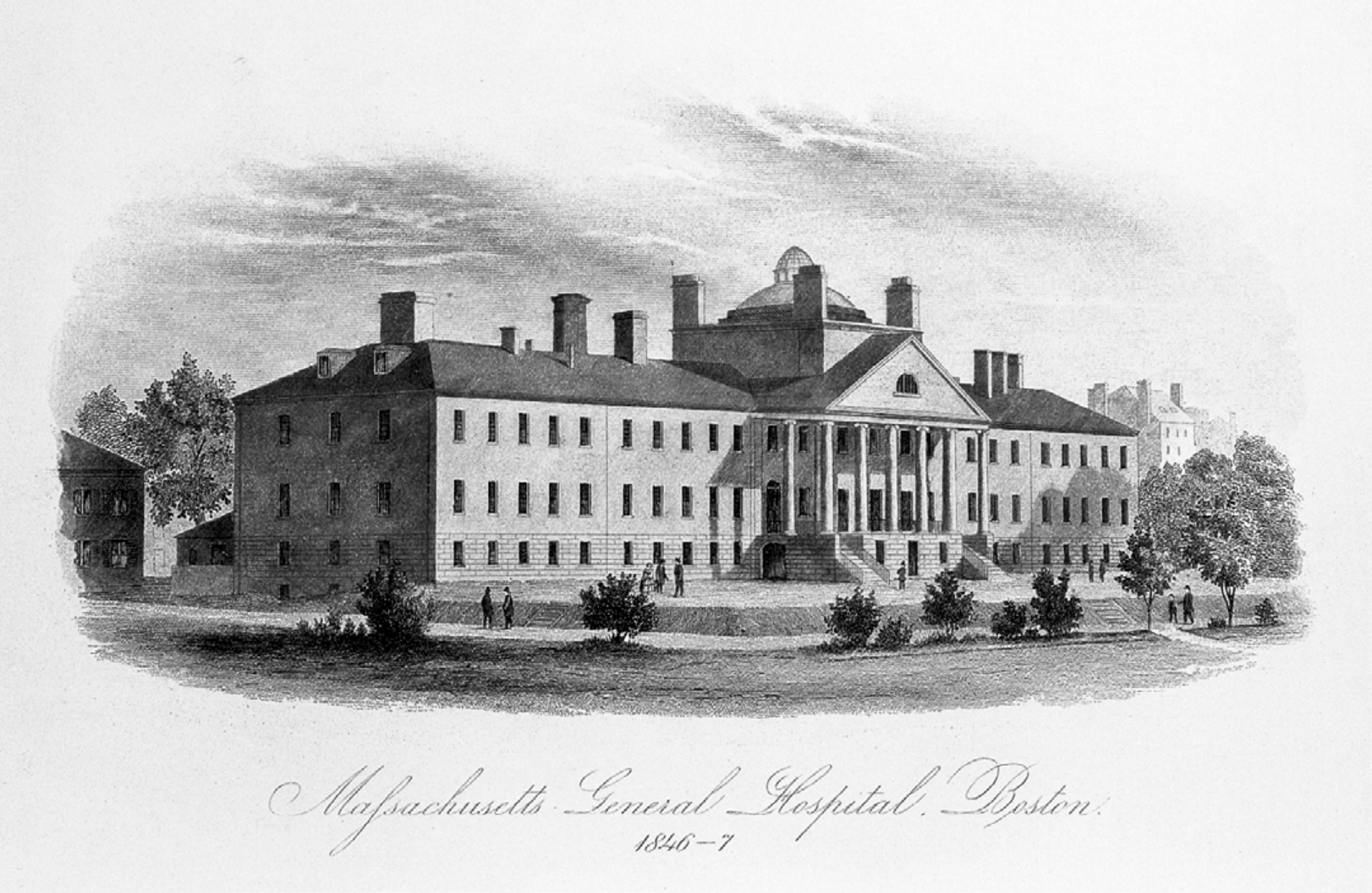Institutions founded during the period of slavery are not defined by that alone. Their long history also illustrates the possibility of progress.
- by Nathaniel Bowditch
“The net income of the fund shall be used each year to aid needy and worthy colored students in the Harvard Medical School.”
- Bequest of Harriet Hayden, 1894
”- Daderot
The Navigator
Nathaniel Bowditch of Salem was a gifted
mathematician and scientist in Federal era
Salem. He is best known for writing a classic book on navigation. The New American
Practical Navigator appeared in 1802 and
has been used by seafarers into modern
times. His son Henry became an innovator in medicine at Massachusetts General
Hospital and Harvard Medical School.
Dr. Henry Bowditch was also an ardent
and committed abolitionist.

Massachusetts General Hospital at the time of Dr. Henry Bowditch . . .
- Massachusetts Archives
The Fugitive
Lewis Hayden was an escaped slave who
came to New Bedford before settling in
Boston. His Beacon Hill boarding house
became a celebrated stop on the Underground Railroad. Dr. Henry Bowditch was
Hayden’s close friend and personal physician. When Hayden’s widow Harriet died,
she left her home to Harvard University.
Recognizing the Hayden’s friendship with
Dr. Bowditch, its sale was used to fund a
scholarship for black students in the medical school – a fund that still exists.
Lewis Hayden’s Beacon Hill boarding . . .
Historical Memory
When Nelson Mandela emerged from decades of imprisonment he did
not seek revenge. However he did insist that the truth be told about
his nation’s past. In that spirit these stories from early Massachusetts
convey pain but also serve to document the long arc of progress
